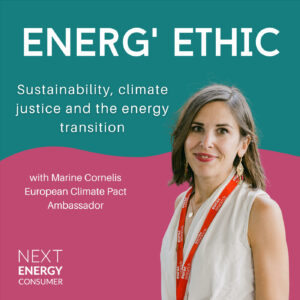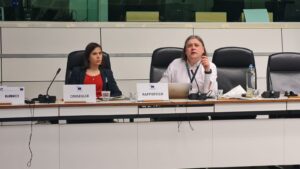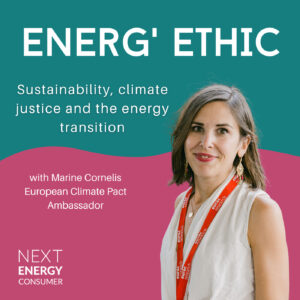Now that I am approaching the end of the ‘European tour’ that I started in May, I can say that I’ve found more questions than answers, but I also feel much wiser. I received more insights and inspiration than I had in many years.
I’ve been traveling all around Europe in the last weeks, attending events after events and meetings after meetings. Initially, the purpose of the tour was to meet as many energy poverty experts for the ESRC Just Energy project. A couple of timely invitations later, those trips became the right excuse to satisfy my personal curiosity and learn as much as possible about the new energy models, and get to know the people who truly want to make a difference.
I met researchers observing all angles of social and energy (in)justice; engineers ready to install solar panels on the roofs of all major buildings and connect remote islands; dedicated social workers willing to apply more than long-lasting bandages to the victims of energy poverty; entrepreneurs sharing their passion for a future full of sustainable solutions; and so many inspiring smart women and men in the quest of solutions to engage in a clean and sustainable future with energy efficiency at its core, and address energy poverty.
I had been longing for more insights, for experiences and encounters different from the ones I got used to getting in Brussels. I wanted to know the people behind the ideas and concepts explained in a 5-minute PowerPoint presentation before 200 people. Those encounters were also the perfect occasions to become more up-to-date and more insightful for my partners and clients.
Making intelligent collective efforts for a better future look, instinctively, the only option.
I clearly see a momentum. At least on paper and in the circles I’m in, sustainable energy efficiency is everywhere, going along with digitalisation, digital footprint, solar PVs, ‘clean tech’, smart grids, smart cities, smart mobility, smart way of consuming, right to a clean environment; and even the idea of a circular economy is gaining ground. Energy communities and cooperatives are blossoming all around Europe; energy poverty is becoming unbearable.
I realised, as a millennial myself, that these viewpoints and choices came naturally to me. I have lived most of my life hearing that this year was the climate catastrophe of the century. Making intelligent collective efforts for a better future look, instinctively, the only option.
On the paper, then, energy democracy and bottom-up empowerment are starting now, from the ground, as an urging feeling from a certain part of the population – or even as a business opportunity for other. I keep asking the same questions, and I’m passionate about them:
How can we make sure this shift of mindset springs into actions and tangible results? How could we trigger this key moment and engage those who don’t know or don’t believe they have a role to play?
Shall governments and public money finance the transition? What kind of business models are needed? Is there a way to go beyond middle-class solutions and see a true takeoff?
Are women envisioning the change differently? What kind of tailor-made approach do we have to adopt to involve minorities?
How do we make sure new rights will be (fairly) enforced? How do we make sure no one is left behind, wherever he or she lives?
How can we preserve the beauty of our crowded ancient cities while looking at a zero-emission future?
As we are condemned to adapt smartly to a world profoundly transformed by climate change, those questions cannot be avoided anymore. If our energy and environmental future means a government by the people, for the people, the principles of fairness, social equality, and respect for the individual have to be central. For real.





One Response